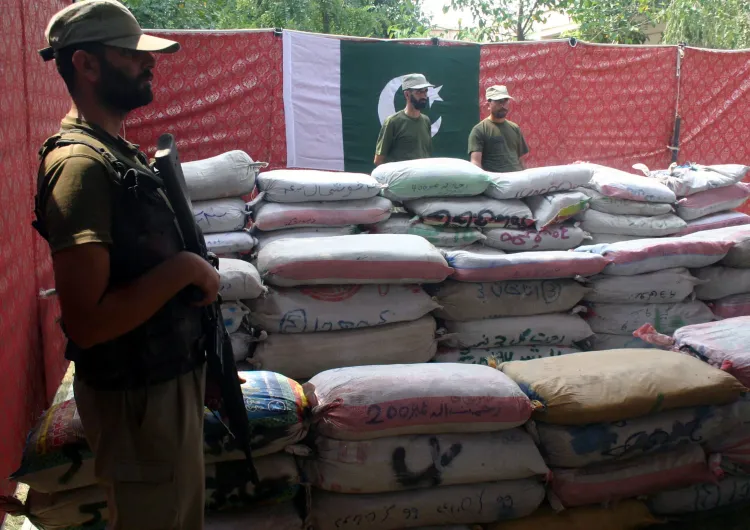What Are the Economic Costs of Illicit Trade in Pakistan?

Synopsis
Key Takeaways
- Illicit trade costs Pakistan Rs 3.4 trillion annually.
- 30% of losses are attributed to Afghan Transit Trade misuse.
- Tobacco sector alone incurs Rs 300 billion in losses.
- Effective measures are needed to combat revenue losses.
- Five major sectors are responsible for significant revenue deficits.
Islamabad, May 2 (NationPress) The issue of illicit trade is leading to a staggering annual loss of Rs 3.4 trillion for Pakistan, with approximately 30 percent attributed to the misuse of the Afghan Transit Trade facility. This alarming statistic comes from the latest Illicit Trade Index report, which ranks Pakistan at 101 out of 158 nations. The cumulative revenue loss exceeds Rs 751 billion, with the tobacco sector alone accounting for an annual loss of Rs 300 billion.
The report, titled 'Pakistan's Battle Against Illicit Trade: An Analysis of Challenges and Pathways to Resilience', highlights that five specific sectors are primarily responsible for these extensive revenue losses.
Jointly launched by the Police Research Institute of Market Economy (PRIME) and the Transitional Alliance to Combat Illicit Trade (TRACIT), the report indicates that the sectors affected include tobacco, pharmaceuticals, tyres and lubricants, petrol and diesel, and tea, all of which contribute significantly to the national revenue deficit.
According to the report, illicit tobacco losses reach Rs 300 billion, pharmaceuticals account for Rs 60-65 billion, tyres and lubricants cause Rs 106 billion, petrol and diesel losses total Rs 270 billion, and tea contributes Rs 10 billion annually.
With a composite score of 44.5, Pakistan's ranking places it below the global average of 49.9.
The report further elaborates that the ongoing illicit trade activities result in a massive revenue shortfall estimated at Rs 3.4 trillion, with 30 percent of this loss stemming from the abuse of the Afghan Trade Transit facility.
These losses equate to roughly 26 percent of the annual tax targets for the financial year. The severity of this situation is underscored by a projected annual tax revenue loss of Rs 3.4 trillion, linked to an estimated $123 billion informal economy.
The report cautions that illicit trade presents a significant threat to Pakistan's economy, undermining formal businesses, jeopardizing consumer safety, and diminishing government revenue.
From smuggled petroleum and counterfeit pharmaceuticals to untaxed cigarettes and under-invoiced goods, illicit trade has become deeply entrenched in critical sectors.
The report also highlights the financial drain from the Afghan Transit Trade, estimating revenue losses due to its misuse at about Rs 1 trillion.
Pakistan is currently lacking in effective risk profiling systems and modern container scanning technologies, further exacerbating the situation.
The report concludes that porous borders, outdated customs infrastructure, and inadequate inter-agency coordination facilitate the unregulated flow of illicit goods.









